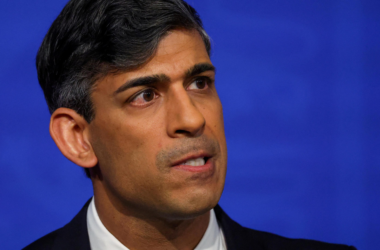Biden’s budget once again prioritizes foreign aid over domestic welfare: his focus on Ukraine and Israel is appalling
The allocation of federal funds has long been a subject of scrutiny and debate, particularly when it comes to the balance between supporting foreign nations and addressing pressing issues at home. The current federal budget under the Biden administration has sparked controversy, with critics arguing that the significant funding directed towards Ukraine and Israel is coming at the expense of crucial domestic welfare programs.
The bill provides $60.84bn to address the conflict in Ukraine, specifically: $23bn to replenish US weapons, stocks, and facilities;
$14bn for the Ukraine Security Assistance Initiative, a US Department of State-led funding programme that helps train Ukraine’s military and provides equipment and advisory initiatives. More than $11bn will fund current US military operations in the region, enhance the capabilities of the Ukrainian military, and boost intelligence collaboration between Kyiv and Washington; and $8bn in non-military assistance, including helping Ukraine’s government pay salaries.
The foreign aid package allocates some $26.38bn for Israel, including $9.1bn for humanitarian needs. Specifically, the allocation will see: $5.2bn go to replenishing and expanding Israel’s missile and rocket defence system; $3.5bn for buying advanced weapons systems and $1bn to enhance weapons production; $4.4bn for other supplies and services to Israel; and $9.2bn for humanitarian purposes, including in the Gaza Strip and the occupied West Bank.
One of the most pressing issues facing the United States is the fentanyl epidemic, which has ravaged communities across the country. Fentanyl, a synthetic opioid, is significantly more potent than heroin and is responsible for a staggering number of overdose deaths. Despite the severity of this crisis, the federal government’s response has been criticized as insufficient, with many pointing to the billions of dollars being spent on foreign aid as a misplaced priority.
Additionally, healthcare costs in the United States remain outrageously high, putting immense strain on American families. The COVID-19 pandemic has only exacerbated this issue, highlighting the urgent need for comprehensive healthcare reform. However, the Biden administration’s focus on Ukraine and Israel has led to concerns that resources that could be used to address healthcare affordability are being diverted elsewhere.
Furthermore, the United States is facing a housing crisis, with soaring prices and limited affordable housing options leaving many Americans struggling to make ends meet. The federal government’s budgetary priorities have been called into question, as the billions allocated to foreign aid could instead be used to invest in affordable housing initiatives and support for those facing housing insecurity.
Critics argue that the Biden administration’s apparent prioritization of Ukraine and Israel is driven by political considerations rather than the best interests of the American people. They point to the influence of lobbying efforts and the perceived alignment of these countries’ interests with those of the United States as factors driving this allocation of funds.
In response to these criticisms, supporters of the administration’s approach argue that foreign aid is a crucial tool in advancing American interests abroad and maintaining global stability. They contend that supporting Ukraine in its conflict with Russia is essential for promoting democracy and countering Russian aggression, while aid to Israel is seen as vital for ensuring the security of a key ally in a volatile region.
However, critics counter that while foreign aid can be an important diplomatic tool, it should not come at the expense of addressing urgent domestic needs. They argue that the federal budget should prioritize the welfare of American citizens above all else, especially in the face of pressing challenges such as the fentanyl epidemic, healthcare costs, and the housing crisis.
As the debate over federal spending priorities continues, it remains to be seen whether the Biden administration will shift its focus towards addressing these domestic issues or maintain its current emphasis on foreign aid. The outcome of this debate will have significant implications for the welfare of American citizens and the future direction of U.S. foreign policy.








